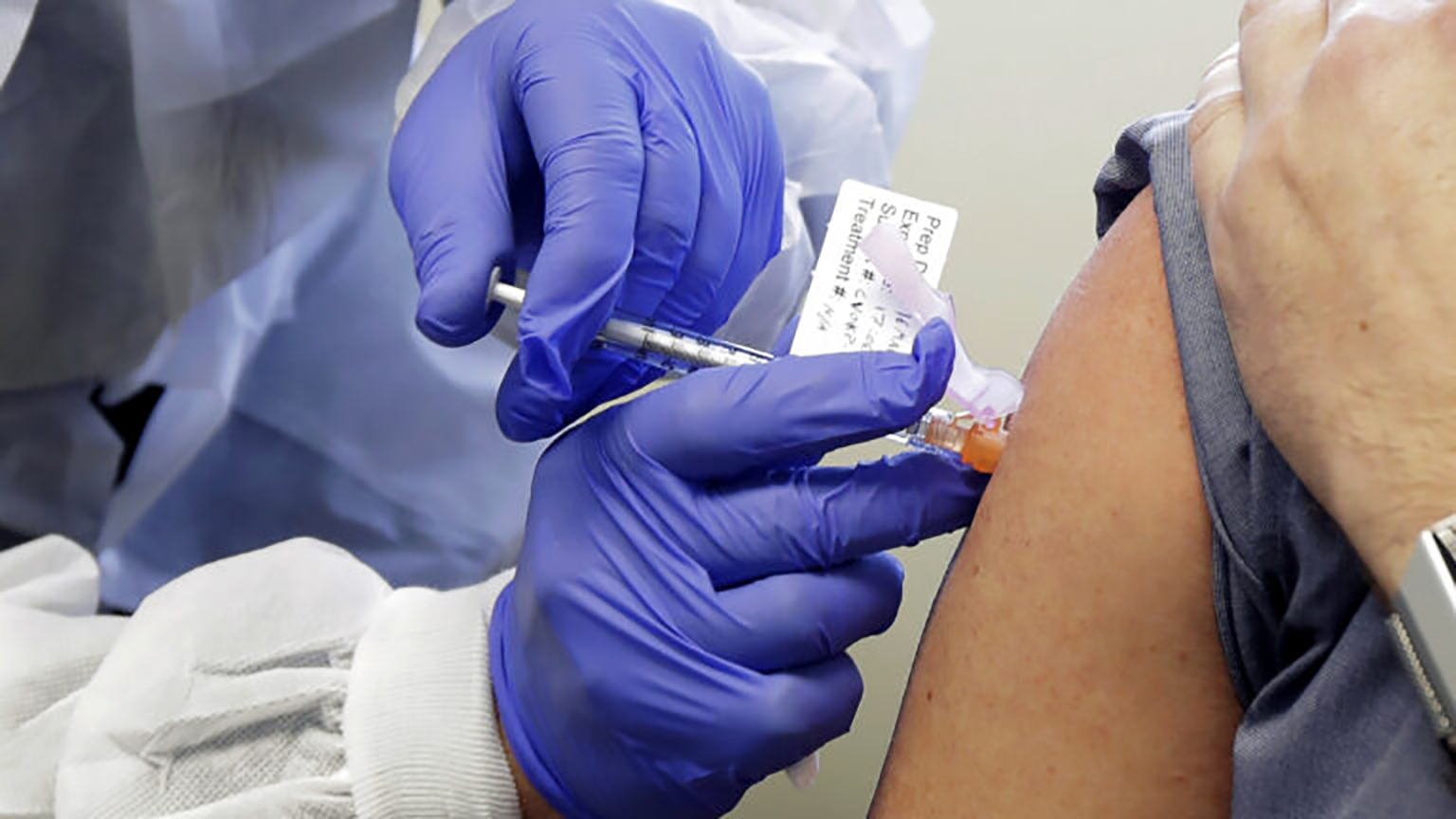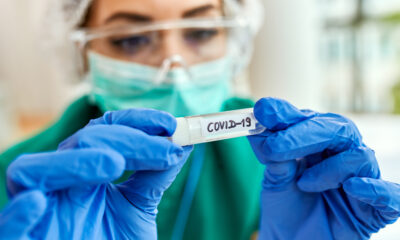
Featured Item

Enough vaccines to go round, say experts, but not for a while
There is a widespread perception in the community that South Africa is lagging way behind in its vaccine rollout, but insiders say there will be enough vaccines to go round and herd immunity isn’t a pipe dream.
Discovery Group Chief Executive Adrian Gore told the SA Jewish Report this week that South Africa had secured 51 million doses of vaccines. These include 31 million doses of the Johnson & Johnson vaccine and 20 million doses of the Pfizer-BioNTech vaccine.
“Together, these should be sufficient to cover more than 40 million adults in South Africa, exceeding the population herd immunity target of 29 million people,” he said.
He said cabinet had indicated an intention to vaccinate all high-risk groups, including essential workers, people over the age of 60, and people living with multiple co-morbidities by the latest October 2021.
“Discovery, together with public and private-sector partners, is pushing hard to achieve this sooner, pending the available supply of vaccines.”
Professor Barry Schoub, emeritus professor in virology at the University of the Witwatersrand and the former director of the National Institute for Communicable Diseases, agreed that there was a perception that the country was lagging behind.
However, Schoub said South Africa was lucky that the lag hadn’t been too damaging, because of the low transmission rate of the virus. This, he said, was “unlike the continuing devastation in the northern hemisphere in spite of extensive vaccine rollouts in those countries”.
“We do hope that there will be sufficient vaccination in good time for a large proportion of high-risk individuals to be covered before we experience our third wave and before winter,” he said.
“Unfortunately, financially, we weren’t able to race with the hounds and grab all the good vaccines, as most of the high-income countries have selfishly done, procuring far more than their populations needed.”
Schoub, who also chairs the Ministerial Advisory Committee on COVID-19 tasked with advising the government on vaccine-related matters, said there were a number of important things to remember about the rollout.
“First, many of the middle and lower-income countries have opted to roll out with vaccines which haven’t yet been approved by what are called stringent regulatory authorities, for example the United States Food and Drug Administration,” he said. “For example, vaccines from China and Russia, which may well be very good vaccines and are also undergoing review in South Africa, but haven’t yet been approved by the South African Health Products Regulatory Authority (SAHPRA).”
South Africa is “very fortunate” in having an excellent regulatory authority in SAHPRA, Schoub said, advised and supported by a team of excellent local scientists, in order to uphold high standards of safety and efficacy in approving vaccines for use in this country.
“Also, it’s indeed fortunate that we didn’t, in fact, like high-income countries, rush to buy large amounts of vaccines because of the dominance of the B.1.351 variant in South Africa. This variant is proving to be a major determinant of vaccine efficacy.
“We are also fortunate in this country to have a network of scientists which ranks amongst the top in the world in the COVID-19 field, who can provide the most advanced scientific evaluation of the suitability of vaccines for the South African environment, especially given the dominance of the B.1.351 variant.”
South Africa’s vaccines are expected to start arriving in the middle of this month, according to Gore.
A total of 0.6 million Pfizer-BioNTech doses are scheduled for delivery this month, and a further 4.5 million Pfizer-BioNTech doses are scheduled for delivery in May and June, with the remaining 15 million doses scheduled for delivery in the third and fourth quarters of this year.
Gore, who has been working with the task team (chaired by Schoub) appointed by the health minister to support vaccine procurement, said 2.8 million Johnson & Johnson doses were scheduled for delivery from April to June, with the balance scheduled for delivery in the third and fourth quarters of this year.
He said Discovery had been working on detailed plans to ensure its medical-scheme members and clients were able to access vaccinations as soon as they were eligible according to national prioritisation criteria.
“In alignment with the national priority setting process and three-phase rollout, we have segmented and stratified our member base based on those at highest risk. Through this exercise, we have identified more than 550 000 clients and members as high-risk,” he said. “The aim is to vaccinate this group as quickly as possible, then to go on to provide access to vaccination for the remaining 2.5 million members and clients as quickly as possible in the following phases of the rollout, ideally before the end of 2021.”
He said Discovery was also preparing to help its members navigate the vaccination process. This includes how to register on the Electronic Vaccination Data System, how to locate accredited vaccination sites, providing follow-up reminders for second doses, and providing access to vaccination certificates.
“Discovery is participating in Business for South Africa workstreams that are planning the roll out of the national COVID-19 vaccination programme alongside the national department of health. We are contributing skills and expertise to support this national effort,” Gore said.
He said Discovery remained in regular contact with vaccine manufacturers, while making every effort in co-ordination with the health department to speed up availability to members of the medical schemes it administers.
“Schemes administered by Discovery have ring-fenced funds for vaccination for all members. We are ready and waiting to disburse these funds pending the arrival of vaccines and official launch of the next phase of the rollout,” he said.
According to the health department, the number of healthcare workers vaccinated under the Sisonke Protocol remains 269 102, a tiny figure compared with the United States, where a record four million people received a vaccine last Saturday alone.











Evelyn
April 8, 2021 at 12:05 pm
I would like to ask a question and would be very grateful if someone would be able to answer me.
Can one have 2 vaccinations? Example The J&J and the Phizer, or 1 Dose of Phizer and a J&J vaccine.
Or both 1st and 2nd vaccines of Phizer and then after a few months the J&J?
A) Would this be safe?
B) How long between each vaccination would be considered a safe waiting period?
Thank you.
Evelyn